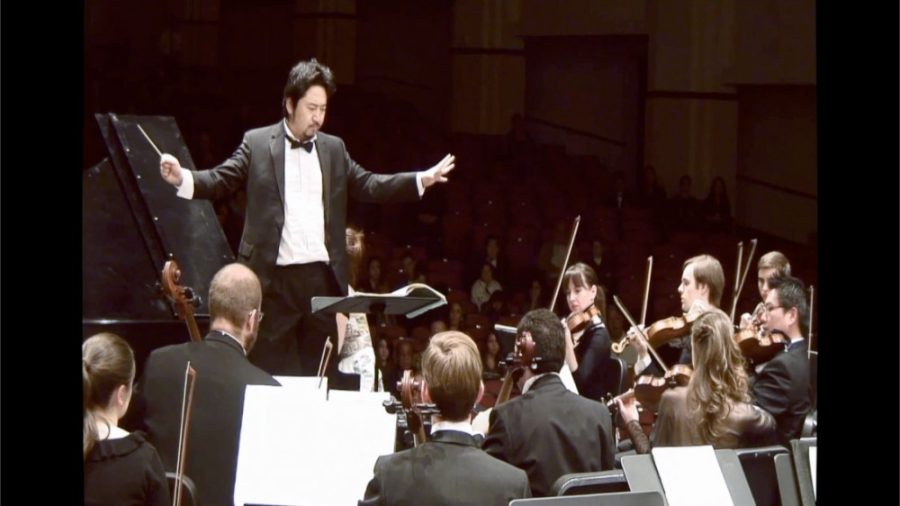When Keun Oh takes the stage in Besançon, France next week, he will be living out an aspiration he’s had since he was a boy.
The musical arts doctoral student is set to compete in the final rounds of the 53rd International Besançon Competition for Young Conductors.
“Every young orchestra conductor knows about this competition,” Oh wrote in an email, “because it is among the most prestigious orchestral conducting competition[s]. I have dreamt of being a participant since a very young age; it requires much knowledge and experience and has allowed for me as a conductor to study on a much deeper level.”
Oh began his musical career at age 5, when he learned how to play the piano, and shortly after he won first prize at the Korean Youth Piano Competition in Seoul. His passion continued through his college career at Yonsei University and eventually led him to the UA School of Music, where he studies under music professor Thomas Cockrell. Cockrell is also he conductor for the UA Philharmonic Orchestra.
The contestants went through an extensive preliminary round in order to narrow it down to the final 20 that will be competing in the upcoming week, Cockrell said.
“They do preliminary filtering of candidates in four different spots — France, Berlin, Beijing and Montreal,” Cockrell said.
The competition will run through Sept. 21 and consist of a series of performances that Cockrell and Oh have prepared for by rehearsing symphonic, choral and orchestra works, among others.
Oh has prepared six works for the competition: the 1919 version of “The Firebird” by Igor Stravinsky, “Symphony: Mathis der Maler” by Paul Hindemith, “Violin Concerto in D major” by Johannes Brahms, “Pelléas et Mélisande” by Gabriel Fauré, “Elijah” by Felix Mendelssohn and the first act of Pyotr Tchaikovsky’s opera “Pique Dame.” In the competition, Oh will face a series of evaluations along with the other 19 contestants, who will eventually be narrowed down to three finalists.
“It gets increasingly stressful,” Cockrell said. “There’s a certain amount of … work [involved in] being able to just keep an orchestra of 90 people together and focused, and then there’s the artistic shaping of the music and being able to derive the most beautiful sound from those instrumentalists.”
Ace Edewards, also a graduate student studying musical arts in orchestral conducting, has worked alongside Oh and said he is familiar with the pressures of conducting an orchestra and hopes for the best for Oh.
“He’s an excellent musician and he’s an excellent conductor,” Edewards said. “I want him to win because … then you would hope that it would lead to a job, either conducting orchestras as a fixed spot or being hired as a guest conductor.”
Oh said he is looking forward to participating in the competition.
“I just want him to have a personal triumph if nothing else,” Cockrell said. “I think he’s very well prepared and the whole School of Music wishes him well.”









